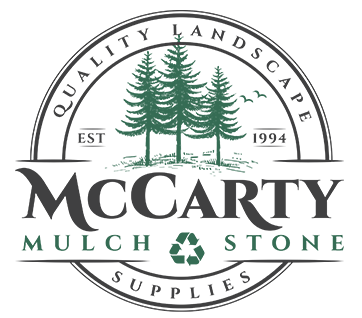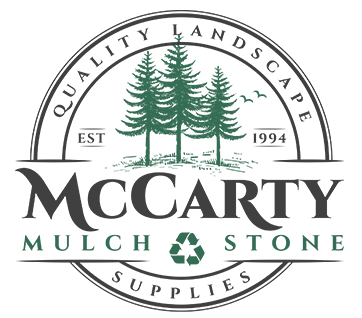Different Types of Compost and Their Uses
Compost is a common gardening technique for a reason; it’s a fantastic way to supply your plants with the nutrients they need to grow to their fullest potential. This excellent source of organic matter and nutrients efficiently provides nutrients little by little but supplies organic matter in large quantities.
Organic matter is imperative in a productive garden because it improves the soil’s capacity for water allowing your plants to have everything, besides sunlight, that they need to flourish.
Composts are created from decomposed animal waste and plant waste.
Compost often cannot be made instantly because the initial mixture has to be set aside for a few months before it can be used in a garden. This is why many compost users buy compost from sellers to use immediately, like our high-quality garden compost which never fails to provide exceptional nutrients for any garden. Three common types of compost are farmyard manure, green manure, and homemade compost. Each kind has its benefits and drawbacks.
We’ll discuss each type of compost to determine which fits your needs best.
Farmyard Manure
This fertilizer is composed of the dung and urine of various farm animals, usually cows. These organic waste products contain an abundance of nutrients, including nitrogen, an incredibly vital element that all plant life requires. Farmyard manure is simple to prepare as it only needs to be mixed into an even layer that is shielded from exposure to excessive water or sunlight. The manure is ready to be used on the fields or in your garden in about six months of steady decomposition.
An effective way of providing your soil with the needed nutrients even before sowing is by spreading the partially decomposed manure along the ground three or four weeks beforehand. Exposure to the elements will allow for further decomposition and will be an advantage for your plants. Be wary if you do choose this method, if there is too long of a delay between spreading your manure and sowing, it could be washed out of the soil before you have a chance to plant anything. If it is aged enough already, you can add it to your garden and begin planting immediately.
There are many advantages to using manure, such as the fact that it is cheap to produce since cows make it every day. It is also considered a safe fertilizer because it is difficult to over-fertilize with it. Of course, there are also a few drawbacks to its use, like the smell or the expense of collecting and transporting the manure. Farmyard manure works best with fruit and vegetable crops.
Green Manure
This fertilizer comes from plants, so it’s pre-farmyard manure. The dead plant matter left after a harvest, or the cover crop is often plowed into the soil or left on the surface and used as a mulch. These practices strengthen soil structure and fertility. The plants used for green manure grow for about eight months until they flower, then they are tilled into the ground and left to decompose for a couple more months before more crops are ready to be sown.
There are many advantages to using green manure, one being that the cover crops improve the deep rooting properties of many plants, which helps to keep weeds from growing. One disadvantage of green manure is that it requires sufficient irrigation, so this method is not ideal for arid regions. This fertilizer works well for many plants, including most commercial crops like corn, cotton, wheat, and rice.
Compost
Composting is an easy method of making fertilizer at home that works best for those who don’t want to spend money and need a way to come up with the material quickly. Everything you need to create the mixture comes from your household waste every day, such as grass clippings from your lawn, green waste from the kitchen, stray leaves, and other vegetation that would otherwise get thrown away.
Vigorous plants grow from well-made compost whether you are growing vibrant rose bushes, prosperous herb gardens, or growing plots for fresh vegetables. Adding compost to your garden will boost soil fertility and help stimulate healthy root growth and development in your plants. This process is recycling trash into treasure and eliminating the need for chemical fertilizer. To properly create the compost, you will need to provide the mixture first with suitable conditions for thorough decomposition. Keep your bin or pit in a shaded area that receives just enough water to be considered moist. Three to five months is how long it should take for your compost to decompose. Afterward, you can choose to mix it into your garden’s soil or lay it on top like a layer of mulch.
Benefits of Homemade Compost
The benefits of homemade compost are as listed; you are reducing the amount of waste that goes directly to landfills, using compost can revitalize soil that has been contaminated by hazardous waste, and it requires minimal effort to make. One risk attached is the chance of adding unhealthy ingredients and ruining the nutrient balance of your soil. If you choose to add manure into your mixture, it is a bad idea to mix in the waste of any creature other than herbivores. So not your cat’s or your dog’s and most certainly not your own should ever enter the garden, as they could cause foodborne illnesses.
There are so many benefits of using any type of compost, whether, in a simple home garden or large farming plots, it undoubtedly makes a world of a difference. The cost of composting compared to using chemical fertilizers could save you a substantial amount of money in the long run, and the process practically renews itself each year. If you keep at it consistently, your plants will always have a reliable source of nutrients to keep them growing strong. Simply collecting your kitchen and yard waste will do yourself and the environment a huge favor, delay no more, and get find out what will work best for your specific plants.




